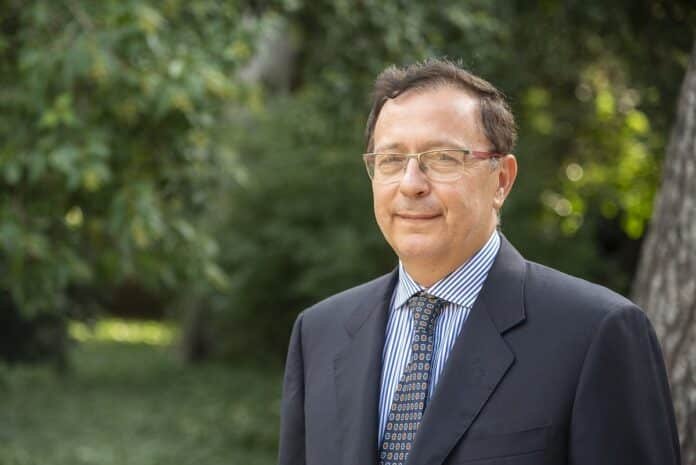ROME, OCTOBER 16 – Grammenos Mastrojeni, an Italian diplomat, is Deputy Secretary-General for Energy and Climate Action of the Union for the Mediterranean (UfM), a regional intergovernmental organisation in charge of enhancing stability and cooperation on different sectors among Mediterranean States. In today’s interview, Mastrojeni discusses the working methods of the UfM, particularly in its relation to the United Nations, and presents the organisation’s dossier for the sectors he is in charge for, Climate and Energy.
Which is the operative model and in which framework does the Union for the Mediterranean work, particularly in relation to the United Nations and its related agencies?
It’s a strict operative cooperation. In fact, every time one of our competencies intersects one of the UN, we try to work together and in coordination. The organisation works concretely on the basis of consensual mandates obtained in ministerial meetings and declarations. An organisational obstacle to our relationship lies in geographic constraints, because the UfM is the only organisation with competences in an area (the Mediterranean) that enjoys social, historic, economic and cultural unity, but is divided in three different macro-areas (Europe, Asia, Africa) for what accounts the United Nations framework. Notwithstanding it, operatively speaking we are in symbiosis, as demonstrated, for example, by our participation as special observers to the most important UN conference of the most immediate future, the COP26, but we can also mention the close operative cooperation with UNDP or on energy matters, which allowed us to participate to the Cairo ministerial meeting on Climate and Energy in preparation of next year’s COP27 in Egypt.
You are also a university professor, specialising in the relation between environmental degradation and its economic, social and security impact. Does this specialisation have a concrete application inside the organisation’s mandate?
Most definitely. The organisation’s mandate, in fact, has the objective of contributing to the creation of a fair and pacific Mediterranean, and this challenge has currently climate change as its worst enemy. Moreover, the fight against climate change is further complicated by the huge asymmetries which characterise the Union’s Member States. This asymmetries are present in several sectors, but data for international exchanges perfectly exemplify the issue at stake, because 90% of exchanges take place between the Northern States, 9% between Northern and Southern States, and a mere 1% between Southern States.
How do these asymmetries affect the response to climate change?
The disparity in the resources available to the Member States means that a problem which can easily be solved in the best-equipped Member States becomes a danger in the worst-equipped ones, particularly for what concerns the ‘way-out’, that is, the concrete response of the population to the disasters. It is precisely in the ‘way-out’ that criminal phenomena creep into the most fragile countries, both in the public and private spheres. Illegality then intersects with another of the most problematic phenomena within our geographical area, that is migration. The Mediterranean (and its waters) is the fastest heating up area in the globe, and this will result in 250 million people facing water scarcity in 2050. This figure is enough to give an idea of the capacity of what I call “forced movements” rather than migration. Moreover, global warming will help to raise the level of the Mediterranean Sea up to one meter at the end of this century, with a devastating impact on some coastal cities, including Venice as an example, but above all on the agricultural areas located in proximity of the coasts, for instance the fertile basin of the Nile river.

A method to contrast climate change is the progressive shift to (currently expensive) renewable energy sources, a path undertaken by the European Union. Are the afore mentioned asymmetries between countries a limit to the transition of the whole area or do the richest States help the poorest ones, perhaps with the support of the UfM?
I can give you the example of the Tafila wind farm in Jordan, a project the UfM supported through “labelling”, that is easing the access to funds to finance the project. However, the strategy that we at UfM support is broader and has its roots in science, economy and security. There is not, in terms of economic power, a single country in the area capable of taking on the entire fight against climate change: each one needs the other. Let me give you a practical example: recently, the two shores of the Mediterranean have begun an intense cooperation in the forestry and agricultural sectors for a simple reason: the South needs the North’s technology in order to industrialise the agricultural process, while the North needs the native species of the South because climate change will make the future north shore resemble to the south ones more and more. And, to answer the previous question, this concept can be applied to both agriculture and energy. The enormous potential of solar and wind energy production in the South cannot be separated from the absorption of this production by the northern markets, which, in turn, without this production would not be able to achieve the objectives set by the Green Deal. In simple terms, what is needed to combat climate change coincides with what is needed to put an end to the endemic conflicts that have been affecting the Mediterranean area for a long time, and to reduce asymmetries.
What practical implications do these arguments have for the organisation’s mandate at the next COP?
The COP26 has among its most controversial elements the use of “technology transfer”, which is unfortunately seen by most of the professionals and public opinion as a gift of technology of the most advanced to the least favorite ones. We argue that our region must implement a “knowledge and technology sharing”, because technology encompasses the mere mechanisation process. The southern shore of the Mediterranean has ancient buildings in the shape of a cone, called yakhchal, which are natural refrigerators consuming zero watts. Or, underground canalisations known as qanat, which allowed the Persians to capture underground humidity and create authentic gardens in the midst of the desert. Also, a traditional building that has an efficient refrigeration system, with zero energy expenditure thanks to the action of wind. The South has been managing arid territories as ours will presumably look like in a few decades for almost 5000 years. It is in this context that knowledge sharing takes on a significant role. If we add, again, that this could help reducing endemic conflicts and asymmetries, we get not two but three birds with one stone.
In short, the fight against climate change is an instrument to achieve the main objective of the organisation, that is, peace and justice in the Mediterranean through regional cooperation?
Precisely. We have just published a report on integration and asymmetries developed together with the OECD, which, for those who want, elaborates in detail the status and prospects of our strategy in this regard. (@girgiodelgallo)

